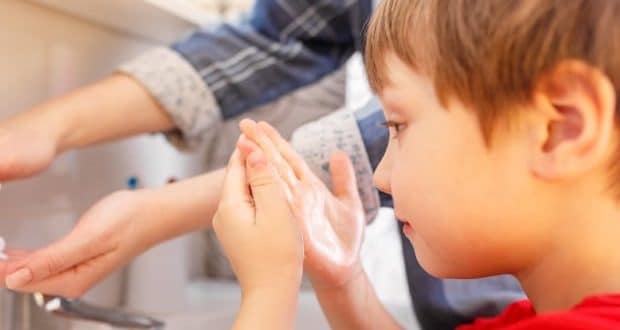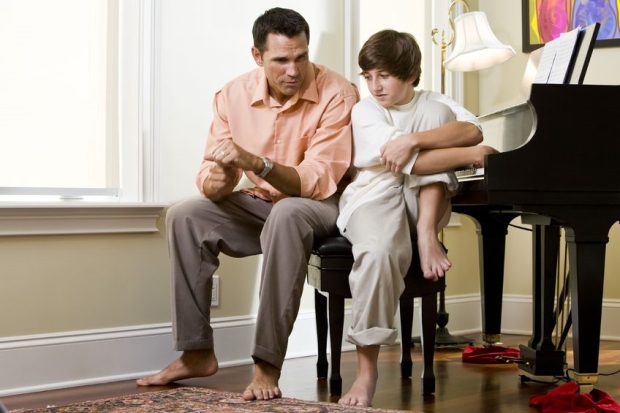The Impacts Of Quarantine On Children
The lockdown has been hard on everyone. And children haven’t been left out. Yet, many parents haven’t fully grasped the impacts of the quarantine on children.
The coronavirus pandemic and measures by the world governments to ease its spread have put a hold on regular activities. All over the world, millions of children are affected but children from poor families including homeless children and children in detention are hit the hardest.
The effects of being isolated for several months are different for children and teens. Young people of the same age have different personalities and interests; hence, their responses to the quarantine will differ. Other factors can influence the effects of quarantine on children such as:
- The quality of a child’s home environment.
- The stability of the child’s home, including the relationship between the child’s parents.
- Whether the child is a single child or has siblings.
- The financial resources of the child’s family.
Let’s explore some of the negative effects of the quarantine on children.
Negative Effects of the Quarantine on Children
1. Lack of Socialization
Socializing is a big part of human life. Even more so, for kids, the time spent with their peers is a crucial part of their development. The social skills essential for life development can’t be taught on zoom lessons or reading alone.
Developing social skills takes a lot of practice, which involves interacting with other people. This aspect of social life kicks into full force in middle school.
Social interactions for many children has significantly reduced. Simple activities like walking down the school hallway, chit chats in the cafeteria, gym, and school bus were brought to a halt.
Children develop social skills and a sense of morality through play and other peer interaction. Being stuck at home limits children from experiencing these essential interactions that lead to the development of close relationships outside of the family.
2. Increase in Childhood Obesity
Before the lockdown, the United States Department of Health and Human Services (HHS) reported one in three children is physically active daily.
This figure will be considerably lower as a result of the quarantine. Lack of physical activity in children can impede their motor skills, cardiovascular and muscular systems.
Due to school closures, many children are physically inactive, have longer screen times, eat more, and have irregular sleep patterns, which can lead to obesity and weight gain.
Many children are no longer able to go for dance lessons, soccer practice, or other after school programs and fitness facilities.
3. Mental Health Issues in a Child
The frustrations, boredom, and lack of in-person contact with classmates, friends, and teachers can take a toll on the emotional well-being of children. Many children have had to miss events they were looking forward to, such as dances, soccer games, field trips, or playdates.
Children may begin experiencing mental health issues like depression and anxiety. Socialization and physical exercise are linked to the improvement in the symptoms of anxiety and depression.
4. Exposure to Cyberbullying and Scams
While digital learning allows many children to continue learning during the lockdown, it has its own downsides. The quality of E-learning, homeschooling, and social interactions are significantly lower than through school or personal contact.
The continuous use of the internet can also amplify risks such as cyberbullying, cyber predators, phishing, and falling for scams.
Positive Impacts of the Quarantine on Children
Though saddened by the events accompanying the pandemic, many have come to terms with it. They’re even finding some good from the lockdown.
1. Digital Knowledge
Many children involved in digital learning can develop their digital savviness. Digital learning also facilitates psychological and social support from outside.
2. Stronger Family Bonds
For many families, the lockdown provides an opportunity to form a stronger bond. It is also helping families take a break from the overly packed and structured system before the pandemic. Children are now able to genuinely connect with their parents and siblings.
3. Learning New Skills
The lockdown has been an eye-opener for many families. Reports from several parents suggest children are discovering and learning some new skills. Children are getting more involved in house chores, cooking, gardening, and DIYs.
4. Happier and Well Balanced Kids
The chaotic lifestyle of running to soccer practice, music lessons, or dealing with a truckload of homework has come to a halt. Many children are happier and less stressed by the rigorous activities of a typical school day.
Children who faced bullying in school are also happy to be away from the negativity.
Overall, children from financially stable homes whose parents can provide resources for online learning can learn and still have ample time for other activities.
Warning Signs Your Child’s Mental Health is Suffering During the Lockdown
Recent reports indicate 3 million children are at risk of developing mental health problems resulting from the pandemic. School closures, social restrictions, and zero playtime outside can be a big disruption for kids.
Kids may not show the same signs as adults during a mental health crisis. So, parents need to spot the warning signs in the beginning.
Some of the signs may include:
- Lack of Concentration
- Bad Eating Habits
- Trouble Sleeping
- Tantrums
- Constant Display of anxiety and uneasiness
Useful Parenting Tips During Quarantine
For some parents, it’s a struggle to play the role of a teacher as well as a parent during the lockdown. However, there are various tips for helping parents remain positive, create a daily routine, and manage stress.
Across the world, many children are going through a period of fear, uncertainty, and boredom. It is your duty as a parent to reduce the adverse effects of the quarantine on your child using the following tips:
1. Talk to your Child
Be willing to talk. You’d be surprised how much your child already knows about the pandemic from various sources. So, secrets and silence will not cut it.
Depending on the age of your child or children, tell them all they need to know about the situation while reassuring them.
2. Create a Routine
One of the ways to bring balance and stability into our daily life is by creating a routine. This should be no different during the quarantine.
Create a realistic routine for your children, similar to the one they had before the lockdown. This will reassure them things will soon be back to normal.
A good routine should include a predictable pattern. Several studies indicate sticking with dinner time, and bedtime routines can be beneficial to a child’s mental health.
You can set a flexible routine different from school days. However, consistency is essential. Another routine that can be beneficial to everyone, free of screen distraction, is meal time.
This also presents an opportunity for everyone to spend time together. Predictable and stable family environments help children feel a sense of security in their homes, which can be helpful to reduce the anxiety caused by the pandemic.
3. Spend Time with your Child
Creating time to spend with your child will give you insight on what’s helping or what’s not. With little or no interaction from outside, your child will most likely want to share all their fears and concerns with you.
Engage your child in fun activities or simply catch up on their daily activities. This will reassure your child and reduce the anxiety or hopelessness they may be feeling from being confined to the home.
4. Rules
Children of all ages behave better with predictable family rules. For instance, rules relating to safety and kindness. Consequently, families should maintain rules and be consistent with consequences.
However, it’s okay to relax expectations on specific rules like screen time or tidiness. This isn’t to say you should not help your child develop productive and healthy habits.
Long Term Effects of the Lockdown on Children
It’s uncertain how long the lockdown and closure of schools and social activities will last. However, studies suggest a more prolonged period may lead to lingering effects on children.
- Alienation from friends can have a long-lasting psychological effect on younger children. The longer school remains closed, the harder it will be for many to catch up on learning and other vital life skills that help a child transition from childhood into adulthood.
- Children from poor families are more at a disadvantage by school closures. They may be unable to afford online learning resources and thus experience a gap compared to their peers.
- More families may be out of jobs if the pandemic goes on for long. Families may begin to sell off assets just to survive. Children in such homes may find it confusing and distressful to live below what they are accustomed to.
- The health implications are also not left out. Currently, immunization campaigns are suspended. The longer this hold remains, the higher risks and costs to eliminate polio or manage measles outbreaks.
- Children who have experienced their family split due to prolonged stress of the lockdown may lose the sense of support and security on which a child’s well being depends.
- Many children will struggle with social anxiety or poor social skills when society fully reopens.
How Parents Can Manage Their Kids During the Lockdown
One of the most important things a parent can do during the quarantine is to find effective ways to help their child cope through difficult times. Here are some recommended tips to follow.
1. Help them Stay Connected with Friends
To create a level of normalcy, help your kids stay in touch with their friends. Encourage them to catch up with friends and families via video calls.
2. Encourage Physical Activity
Staying fit is essential for the mental well being of everyone. Explore online videos to dance, work out, or do yoga. If the weather permits, you can take a walk, improve your gardening skills, or play in your yard.
3. Monitor their News Intake
Teach your children how to pay attention to only news with factual information. You should also limit the time they spend on the media. Monitor their usage and avoid watching anything that might be upsetting while they are present.
4. Help them Accept the New Normal
As of now, life is the new normal. Find ways to help them adjust and cope with the challenges that come with living during the pandemic.
Prolonged exposure to stress and anxiety can be harmful to the health of you and your children. If you feel like coping with daily activities is taking a toll on your mental health or your child’s, you need to seek professional help immediately.
If you’d like to challenge your child a bit more, here are some ideas for how to supplement your child’s education during Covid-19.







